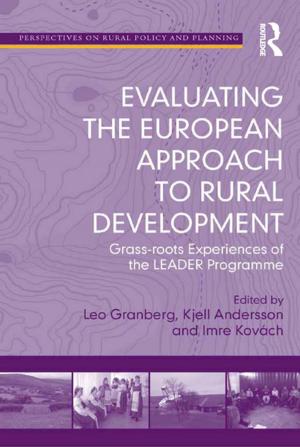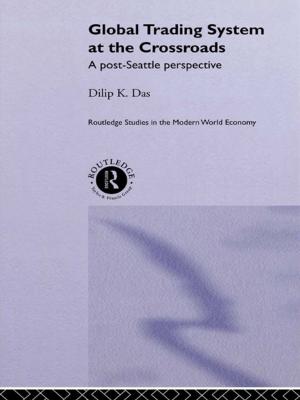E-Voting Case Law
A Comparative Analysis
Nonfiction, Reference & Language, Law, Public, Jurisprudence| Author: | Ardita Driza Maurer, Jordi Barrat | ISBN: | 9781317138181 |
| Publisher: | Taylor and Francis | Publication: | March 9, 2016 |
| Imprint: | Routledge | Language: | English |
| Author: | Ardita Driza Maurer, Jordi Barrat |
| ISBN: | 9781317138181 |
| Publisher: | Taylor and Francis |
| Publication: | March 9, 2016 |
| Imprint: | Routledge |
| Language: | English |
E-voting is the use of electronic means in the casting of the vote at political elections or referendums. This book provides an overview of e-voting related case-law worldwide and explains how judicial decisions impact e-voting development. With contributions by renowned experts on thirteen countries, the authors discuss e-voting both from controlled environments, such as voting machines in polling stations, and uncontrolled ones, including internet voting. Each chapter examines a group of country-specific leading judicial decisions on e-voting and their likely impact on its future development. Reference is made to emerging standards on e-voting such as the Recommendation Rec(2004)11 of the Council of Europe, the only international instrument on e-voting regulation, and to other countries' case-law. The work provides a broader, informative and easily accessible perspective on the historical, political and legal aspects of an otherwise very technical subject, and contributes to a better understanding of the significance of case law and its impact in shaping e-voting's future development. The book will be significantly useful to anyone with an interest in e-voting, in particular decision makers and officials, researchers and academia, as well as NGOs and providers of e-voting solutions.
E-voting is the use of electronic means in the casting of the vote at political elections or referendums. This book provides an overview of e-voting related case-law worldwide and explains how judicial decisions impact e-voting development. With contributions by renowned experts on thirteen countries, the authors discuss e-voting both from controlled environments, such as voting machines in polling stations, and uncontrolled ones, including internet voting. Each chapter examines a group of country-specific leading judicial decisions on e-voting and their likely impact on its future development. Reference is made to emerging standards on e-voting such as the Recommendation Rec(2004)11 of the Council of Europe, the only international instrument on e-voting regulation, and to other countries' case-law. The work provides a broader, informative and easily accessible perspective on the historical, political and legal aspects of an otherwise very technical subject, and contributes to a better understanding of the significance of case law and its impact in shaping e-voting's future development. The book will be significantly useful to anyone with an interest in e-voting, in particular decision makers and officials, researchers and academia, as well as NGOs and providers of e-voting solutions.















